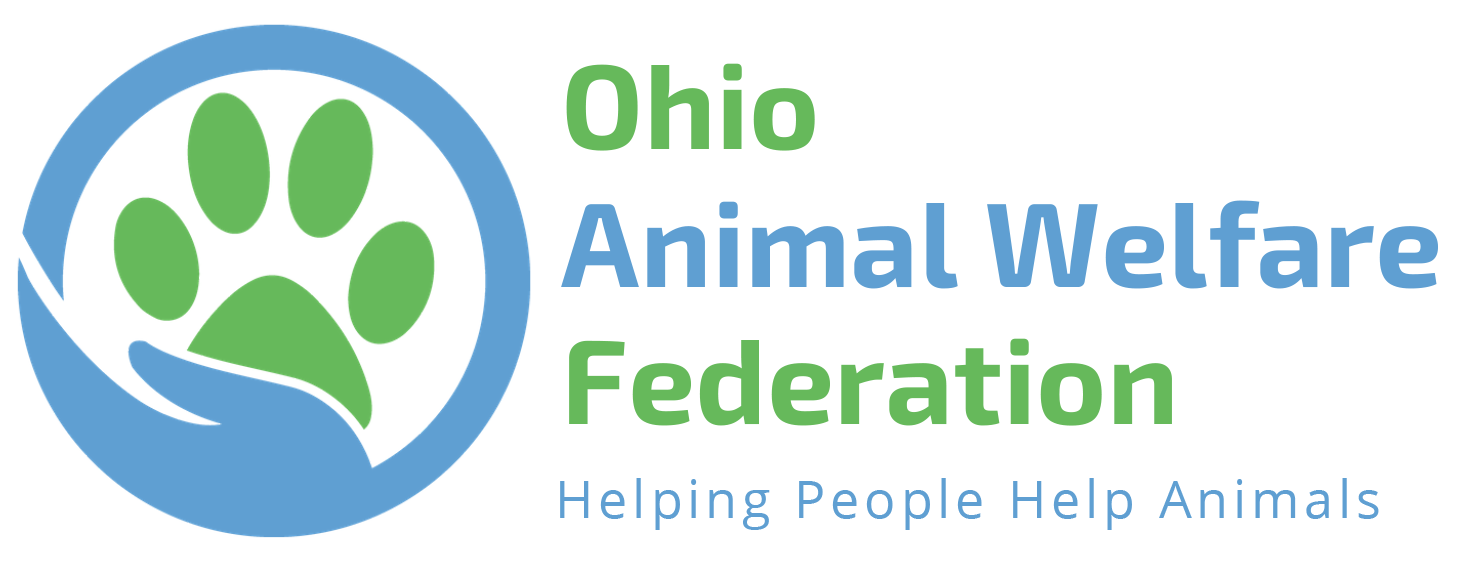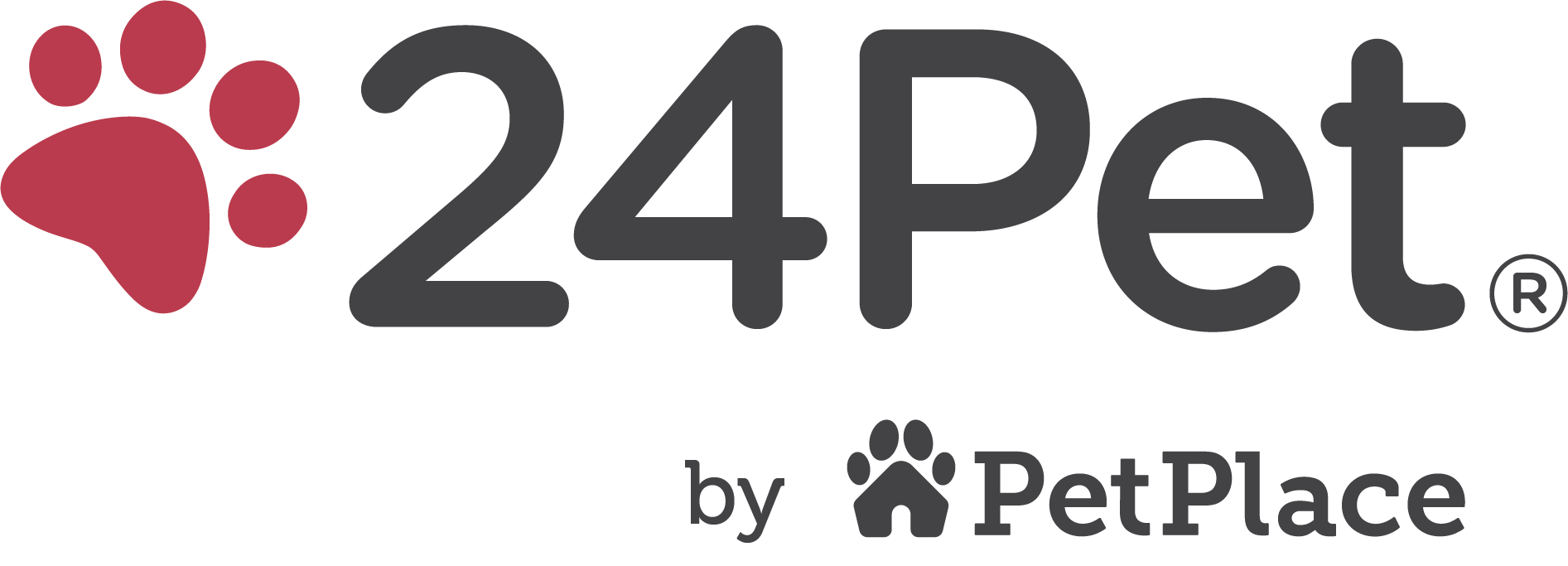SHELTER OPERATIONS & ANIMAL CARE
This page is a compilation of resources related shelter operations and animal care. If you know of an organization or resource not listed here that may be beneficial to others, please send email to ohiofedhs@gmail.com
SHELTERING
ASPCA REQUEST FOR NON-DISASTER RESPONSE ASSISTANCE
Complete this form to request disaster-related assistance from the ASPCA's National Field Response team. For disaster-related shelter support, click here.
GUIDELINES FOR STANDARDS OF CARE IN ANIMAL SHELTERS - updated in December 2022
Published by the Association of Shelter Veterinarians.
In this program, you’ll learn how to improve the emotional experiences of animals by applying key strategies and techniques designed to reduce the negative emotional states that are commonly experienced by shelter and rescue animals, including fear, anxiety, stress (FAS), and frustration. The Fear Free Shelter Program aims to provide training that is suitable for all individuals involved in the care and oversight of shelter and rescue animals—from medical and behavioral staff to intake, reception, kennel, and cattery staff to animal control officers, adoption counselors, foster caregivers, and shelter volunteers. Shelter, rescue, and animal welfare employees and volunteers get free access to the Fear Free Shelter Program.
This guide applies only to locations licensed as terminal distributor of dangerous drugs that meet the definition of a “animal shelter” in rule 4729:5-15-01 of the Ohio Administrative Code.
ANIMAL SHELTER APPLICATIONS AND QUESTIONNAIRES
From Outcomes for Pets Consulting, this document contains: adoption questionnaire; new foster sign up questionnaire; dog owner surrender questionnaire; lost dog intake survey for finders; and new volunteer survey.
As proven lifesaving strategies and shelter medicine continue to evolve, so should shelters’ procedures, programs and protocols in pursuit of providing humane care for the animals. When measuring your shelter’s proficiency in these lifesaving areas, it is critical to analyze the average length of stay (LOS) for animals. Best Friends' manual can help.
ANIMAL ENRICHMENT MODEL PRACTICES
The Association for Animal Welfare Advancement developed the Enrichment Model Practice guidelines, templates, and tools, along with a webinar series and recommended links to other resources.
From UC Davis Koret Shelter Medicine Program.
The Nation's Leading Animal Shelter Specialist for Needs Assessment Studies, Conceptual Design and Full Architectural and Engineering Services.
Knowing your housing capacity is crucial to operating within your humane capacity. This key calculation prepared by ASPCAPro can also help determine your population management strategies, such as population rounds.
CAT PORTALS: OPENING THE DOOR TO LFESAVING
Provided by the UC Davis Koret Shelter Medicine Program, this guide explains the importance of portals for cats and how to obtain and install portals in shelters.
SHELTERS UNITED COOPOERATIVE BUYING PROGRAM
A free membership that gives shelters access to exclusive discounts on veterinary care products, pet food, and supplies.
SAMPLE MANUAL OF STANDARD OPERATING PROCEDURES (members only)
This Microsoft® Word document contains basic standard operating procedures (SOPs) for some of the most commonly performed tasks in animal shelters. It is designed for you to edit and expand to reflect your agency’s policies and procedures.
INTAKE PROCEDURES (members only)
Standard dog and cat intake procedures prepared by the National Animal Care & Control Association.
BEHAVIOR
ANIMAL BEHAVIOR GUIDE FOR ANIMAL SHELTERS - ALIVE & THRIVING
Kelley Bollen, MS, CABC, is a Certified Animal Behavior Consultant with a master’s degree in animal behavior who has worked in the field of companion animal behavior for more than 20 years. She wrote this guide to help shelter staff and volunteers understand the behavioral aspects of caring for homeless animals in the stressful shelter environment.
Developed by the Pedigree Foundation, the Welcome Committee program is a shelter operations initiative dedicated to improving the welfare of shelter dogs.
BEHAVIORAL EUTHANASIA IN SHELTER DOGS (members only)
Guidelines for euthanasia elected in cases when, despite treatment, the Five Domains of animal welfare are not met and maintained and/or the dog is a serious safety risk to people or companion animals.
ADOPTIONS
The Association for Animal Welfare Advancement developed Adoption Model Practice guidelines, templates, and tools, along with a webinar series and recommended links to other resources. Sample policies are intended to be guidelines only.
BUILDING YOUR DOG ADOPTION SUPERHIGHWAY
From the Pedigree Foundation, this guide was designed to hep shelters increase engagement with your community to get more pets adopted faster.
FOSTERING
FOSTERING CONNECTIONS: A GUIDE TO STRENGTHENING VOLUNTEER AND FOSTER PROGRAMS
This toolkit created by the PEDIGREE Foundation in partnership with Kristen Hassen of Outcomes for Pets shares in-depth knowledge and insights on building a foster-centric shelter model, while offering strategies to optimize the volunteer recruitment, onboarding, and fostering process.
TRANSPORT
COMPANION ANIMAL TRANSPORT PROGRAMS BEST PRACTICES
Transport Best Practice guidelines, templates, and tools developed by leaders at The Association for Animal Welfare Advancement, along with recommended links to other resources. Sample policies are intended to be guidelines only.
TRAVELING TAILS: A GUIDE TO EFFECTIVE DOG TRANSPORT PROGRAMS
Developed by the Pedigree Foundation in collaboration with the Kristen Hassen of Outcomes for Pets Consulting, this guide is for animal welfare professionals and anyone else who wants to learn the basics of dog transport.
LOST ANIMALS
Nobody has extra time to reinvent the wheel during Kitten Season—or design a colorful, engaging graphic to help educate the community on what to do if they find a litter of kittens. You can customize this one from Hearts Speak in just 10 minutes.
This handy infographic, based on research by NACA and PetHub, reflects a timeline of steps to follow when a pet is lost—not just what to do, but WHEN. Great to share with your communities.
For veterinary hospitals, animal control facilities, and shelter staff members seeking to streamline the process of reuniting lost pets with their owners, AAHA offers the Universal Pet Microchip Lookup Tool.
MICROCHIP IDENTIFICATION LIST (members only)
Have a microchip you need to identify? Use this handy list to find phone numbers of microchip providers compiled by the National Animal Care & Control Association.
VETERINARY CARE
PROVISION OF VETERINARY CARE IN A SHELTER SETTING MODEL PRACTICES
The Association for Animal Welfare Advancement's model practice will provide a comprehensive overview of a shelter medicine program so the leadership and administration of animal welfare organizations understand the key components necessary to meet the medical needs of the animals in their care.
SHELTERS UNITED VETERINARIAN OF RECORD TOOLKIT
The free Shelters United VOR Toolkit is a collaborative project of Shelters United and the University of Florida’s Online Shelter Medicine Program, made possible through funding by PetSmart Charities. The goal of this toolkit is to provide a blueprint for animal welfare organizations and veterinarians to build strong, mutually beneficial collaborations that improve animal welfare and positively impact the community.
Free online ordering tool for veterinary supplies from all vendors at once.
STAFFING
ONBOARDING MADE EASIER (members only)
Developed by the Montgomery County Animal Resource Center. These resources can help other Ohio Fed members develop an onboarding process that will will provide clarity and structure for everyone involved in the training process.
SAMPLE EVALUATION FORM FOR ED's and CEO's
From the Animal Protective Foundation. The evaluation of the executive director/CEO is typically the responsibility of a non-profit shelter's board of directors.
DETERMINING SHELTER STAFFING NEEDS
The National Animal Care and Control Association recommends that each animal care and control shelter be staffed each day with the appropriate number of kennel personnel to insure that the facility, and every animal within, is maintained at, or in excess of, minimum care standards.
DATA KEEPING
PETFINDER SHELTER SOFTWARE GUIDE
Which software is right for your shelter or rescue group? There are many to chose from and this site managed by Petfinder can help.
AMERICAN HUMANE OPERATIONAL GUIDE: RECORD KEEPING
Accurate and efficient record keeping is crucial to all animal shelters. This manual lays the groundwork for successful record keeping and makes it easier to keep accurate and efficient records.
THE DATA BASICS WORKBOOK - by Shelter Animals Count and Hill's Pet Nutrition
The Data Basics Workbook, powered by Hill’s Pet Nutrition, is your step-by-step guide to mastering data collection and standardization in animal welfare. From key terminology to actionable strategies, this first-of-its-kind resource empowers you to turn numbers into meaningful insights for your organization and the industry.
MICROCHIP DISCOUNT (members only)
Organizational members of the Ohio Animal Welfare Federation are eligible for these special PetPoint discounts:
Ask your PetPoint representative for details! |
|
Address: | © 2025 Ohio Federated Humane Societies (d.b.a. Ohio Animal Welfare Federation) |

